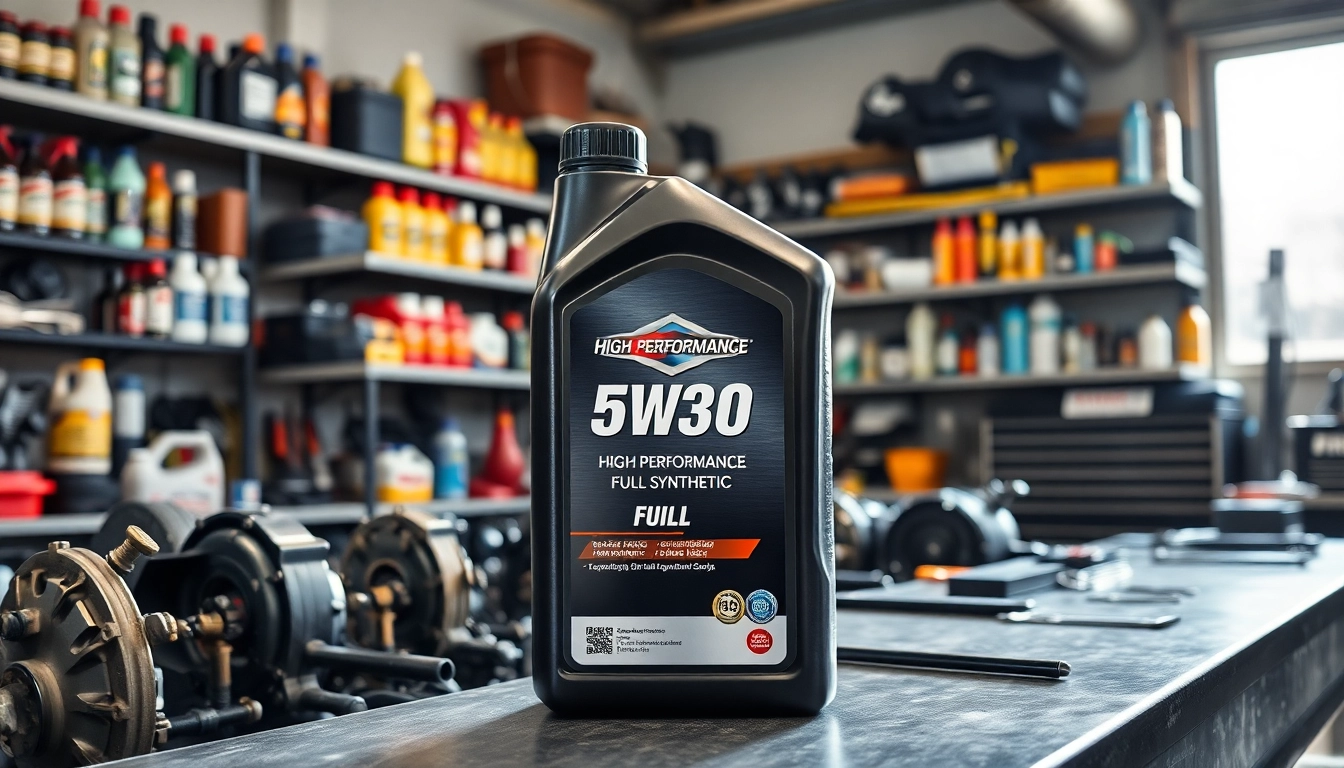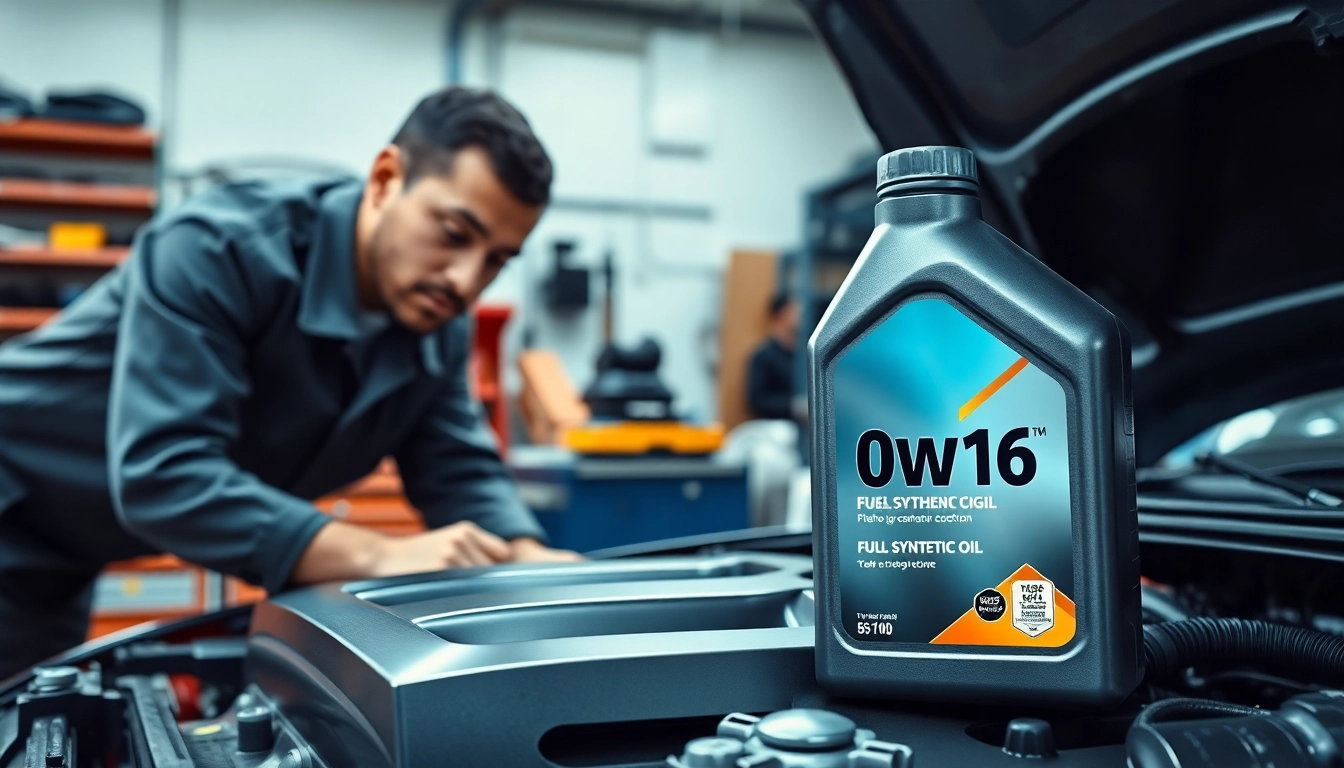What is Full Synthetic 5W30 Oil?
Defining Synthetic Oil and Its Composition
Full synthetic 5W30 oil is a type of motor oil that is engineered using advanced chemical processes, yielding a product that offers superior performance and protection compared to conventional oils. Unlike mineral oils that are derived from crude oil, synthetic oils are created through the synthesis of chemical compounds, allowing for better customizability in properties such as viscosity, volatility, and thermal stability.
The composition of full synthetic oil typically includes a blend of synthetic base oils and high-quality additives. These additives can improve performance metrics such as engine cleanliness, wear protection, and resistance to oxidation, thereby extending the overall life of the engine. While the specific percentages and chemical formulations can vary by brand, the aim remains the same: to provide a motor oil that can withstand extreme conditions while maintaining its protective qualities.
Understanding Viscosity Ratings
Viscosity, a critical property of any oil, refers to its resistance to flow. It is denoted by two numbers in a format such as 5W30, where the first number (5W) refers to the oil’s viscosity at cold temperatures (the “W” stands for winter), and the second number (30) corresponds to its viscosity at operating or hot temperatures.
The “5W” rating indicates the oil’s effectiveness in cold temperatures, which is particularly important for starting engines in winter climates. The lower the first number, the better the oil can flow under cold conditions. The “30” signifies that the oil remains adequately viscous at the normal operating temperature of vehicles, allowing for effective lubrication and protection of engine components.
Comparison with Conventional Oils
When comparing full synthetic 5W30 oil to conventional oils, several key differences emerge. The first is performance. Synthetic oils maintain consistent viscosity across a wider range of temperatures, thereby providing better engine protection under extreme conditions. They also resist breakdown and thinning more effectively than conventional oils, which can lead to better fuel efficiency and higher performance output.
Additionally, full synthetics typically contain fewer impurities and are less prone to forming deposits, ensuring cleaner combustion and component performance. These characteristics translate into less frequent oil changes, longer engine life, and improved efficiency, highlighting why many drivers opt for synthetic oils despite the higher cost.
Benefits of Using Full Synthetic 5W30 Oil
Enhanced Engine Protection and Performance
One of the primary benefits of using full synthetic 5W30 oil is the enhanced protection it offers to engine components. The advanced formulation reduces friction, ensuring that engine parts operate smoothly together, thereby minimizing wear and tear over time.
Moreover, the formulation includes additives that prevent the formation of sludge and deposits, ensuring that the engine remains clean and operates at optimal efficiency. Enhanced thermal stability means that synthetic oil performs better in extreme temperatures, handling high heat without breaking down, which is crucial for maintaining peak engine performance.
Improved Fuel Efficiency
Vehicles using full synthetic 5W30 oil often experience improved fuel efficiency. This benefit arises primarily from the oil’s ability to reduce friction within the engine. By allowing moving parts to glide more easily past one another, the engine doesn’t have to work as hard to perform, thereby using less fuel. Studies have shown that, in some cases, switching from conventional oil to full synthetic can lead to fuel savings upwards of 2-3%.
This enhanced fuel economy is particularly beneficial for drivers covering long distances or using their vehicles for commuting, offering a clear long-term financial advantage against the slightly higher purchase price of synthetic oils.
Longer Oil Change Intervals
Another significant advantage of full synthetic 5W30 oil is the extended intervals between oil changes. Conventional oils typically require changing every 3,000 miles, while full synthetics can often last between 7,500 and 15,000 miles, depending on driving conditions and manufacturer specifications. This not only reduces maintenance frequency but also saves time and money on oil changes.
Drivers can enjoy peace of mind knowing that their engines are sufficiently protected for longer periods. However, it’s essential to follow the vehicle manufacturer’s recommendations for oil change intervals to achieve the best outcomes.
Applications of Full Synthetic 5W30 Oil
Best Vehicle Types for Full Synthetic Oil
Full synthetic 5W30 oil is suitable for a wide range of vehicles, especially modern engines that demand higher performance. It is particularly ideal for:
- High-performance cars that operate under extreme conditions, such as sports cars and luxury vehicles.
- Vehicles with turbocharged engines, which generate more heat and require better thermal stability.
- Cars that undergo heavy towing or off-roading, where the engine experiences additional strain and heat.
- Older vehicles with high mileage, as the oil’s properties help to reduce wear and tear.
Environmental Considerations
The use of full synthetic 5W30 oil can also have beneficial environmental implications. Compared to conventional oils, synthetics are often made from higher-quality bases and allow for longer intervals between oil changes, which reduces waste oil generation. Furthermore, the improved fuel efficiency contributes to reduced greenhouse gas emissions, making it a more environmentally responsible choice for conscientious consumers.
Optimizing Performance in Different Climates
One of the standout features of full synthetic 5W30 oil is its versatility across various climatic conditions. While the “5W” rating indicates effective performance in cold weather, testing has demonstrated that synthetic oils also perform exceptionally well in heat. They maintain optimal viscosity in both freezing and hot conditions while resisting the breakdown that less sophisticated oils might suffer.\n Using full synthetic 5W30 oil in extreme temperatures can help ensure your engine operates smoothly regardless of weather conditions.
Choosing the Right Brand of Full Synthetic 5W30 Oil
Analyzing Popular Brands
With numerous brands available on the market, selecting the right full synthetic 5W30 oil can feel overwhelming. Noteworthy brands include Mobil 1, Valvoline, Castrol, and Pennzoil. Each brand’s offerings come with unique formulations tailored to specific vehicle requirements and driving conditions. Mobil 1, for instance, is renowned for its advanced performance additives, while Valvoline excels in providing excellent oxidation stability.
Carefully analyzing product specifications, user feedback, and third-party performance tests can help consumers identify the best option for their specific needs. It’s useful to consider factors such as engine make, driving style, and typical driving conditions when choosing a brand.
Price and Quality Considerations
Pricing of full synthetic 5W30 oil varies significantly between brands and retailers. While cheaper options may exist, quality should not be sacrificed for price. Investing in a reputable brand not only protects the engine but can also help save money in the long run through extended vehicle longevity and decreased maintenance costs.
It’s advisable to consider the oil’s specifications, certifications (like API and ILSAC ratings), and consumer ratings and testimonials while evaluating price versus quality. Many high-performance oils carry a higher initial cost but offer superior long-term value through enhanced engine performance and protection.
Customer Reviews and Reliability
Reading customer reviews and expert opinions can provide valuable insights into the reliability and performance of different full synthetic 5W30 oils. Customers often share their experiences related to performance, engine cleanliness, and any noticeable fuel efficiency improvements after switching brands.
Online forums, review websites, and automotive blogs can provide a wealth of information, allowing prospective buyers to make informed decisions based on real-world performance rather than marketing claims. Reliability can also be assessed by considering the manufacturer’s track record, customer support, and warranty offerings, providing an additional layer of trust in chosen products.
Frequently Asked Questions About Full Synthetic 5W30 Oil
Common Myths and Misunderstandings
Despite the available information on full synthetic oils, myths persist that can deter potential users. One common myth is that synthetic oils are not suitable for older vehicles. In reality, these oils can provide significant benefits by enhancing protection and reducing engine wear. Another misconception is that switching to synthetic oil will require frequent oil changes; in fact, the opposite is true due to their extended service life.
Cost vs. Benefits of Synthetic Oil
Many potential users are conflicted about the upfront cost of full synthetic oil versus the long-term benefits it provides. While it is true that synthetic oils generally come with a higher price tag, the benefits can outweigh these costs significantly. Users often report savings through reduced engine wear, improved fuel efficiency, and longer intervals between changes, ultimately resulting in lower total ownership costs over the lifetime of the vehicle.
When to Switch to Full Synthetic 5W30 Oil
The decision on when to switch to full synthetic oil depends on several factors, including the age of the vehicle, mileage, and driving conditions. Many vehicle manufacturers recommend synthetic oils for newer models, due to the benefits they offer in terms of performance and protection.
For older vehicles, if the car is frequently driven under extreme conditions or is showing signs of engine wear, switching to full synthetic 5W30 could be beneficial. Drivers should be sure to consult their owner’s manual to ascertain compatibility and any specific requirements that should be followed.



